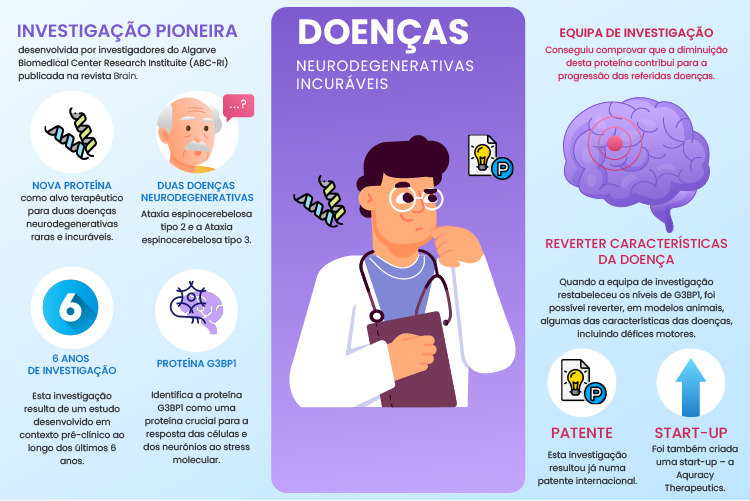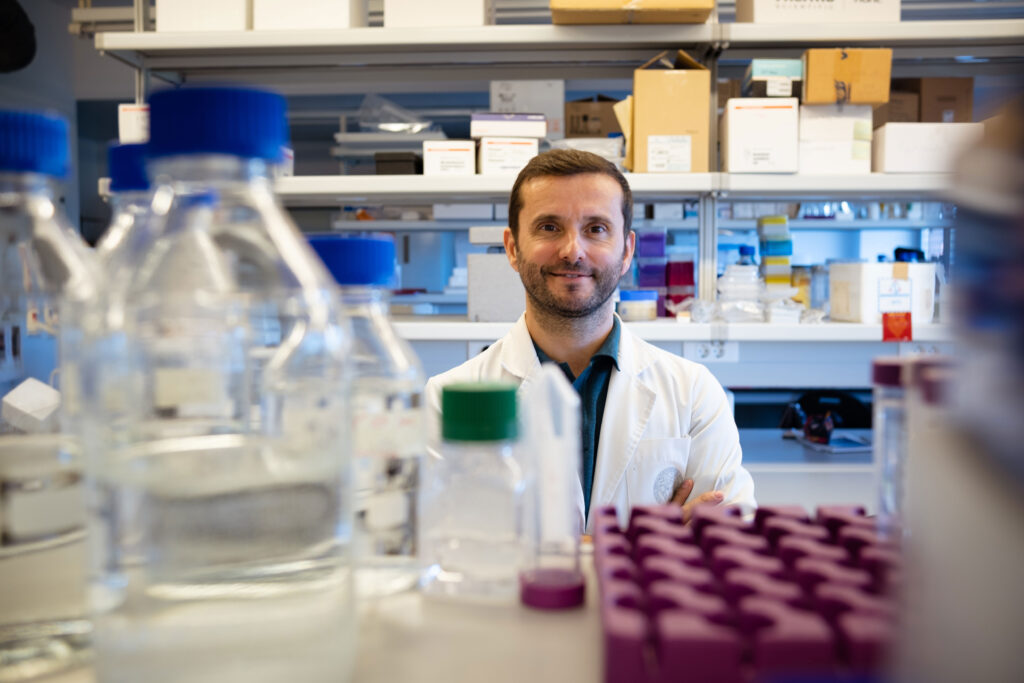A "pioneering research" that could open doors to future therapies for "two rare and incurable neurodegenerative diseases", carried out by a team led by Clévio Nóbrega, researcher at the Algarve Biomedical Center Research Institute (ABC-RI) of the University of Algarve, was made known in an article recently published in the scientific journal Brain.
The research "identifies a new protein as a therapeutic target for two rare and incurable neurodegenerative diseases: spinocerebellar ataxia type 2 and spinocerebellar ataxia type 3 (also known as Machado-Joseph disease)".
“This investigation is the result of a study carried out in a pre-clinical context over the last six years and identifies the G3BP1 protein as crucial for the response of cells and neurons to molecular stress. Using cellular and animal models, the research team was able to prove that, on the one hand, the decrease in this protein contributes to the progression of these diseases. On the other hand, when the research team restored the levels of G3BP1, it was possible to reverse, in animal models, some of the characteristics of the diseases, including motor deficits», explains the University of Algarve.
As these are two diseases for which there is currently no therapy that can delay or stop their progression, «the data now made public are especially relevant in a perspective of the future that may aim to pass on the results now obtained in academia to society».

According to Clévio Nóbrega, responsible for this project, «this revelation is of special importance if we think that, although we are still far from having an impact on the lives of patients, the objective is clear: to create innovation and solutions to real problems and, in particular, for two diseases that, being rare, affect millions of people around the world. Our goal is clear: to help through research to develop a therapy that can delay or stop the progression of the disease».
The researchers believe, therefore, that this project, which combines several techniques and models, from studies with cells from patients to cell models and animal models, now brings new insights on polyglutamine diseases and, in particular, on Machado- Joseph, a disease that has a high prevalence in Portugal, reaching maximum prevalence worldwide in some islands of the Azores.
This research has already resulted in an international patent and the creation of a start-up – Aquracy Therapeutics – currently incubated at the University of Algarve.



















Comments